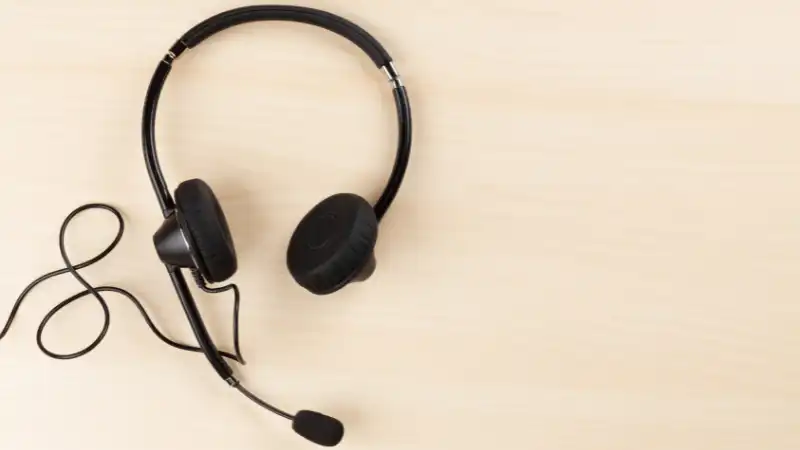
If your drive-thru team constantly asks customers to repeat themselves, or if orders are getting delayed because of static, dropped audio, or dead headsets, your drive thru intercom system may be causing more harm than you think.
Most restaurant owners assume these problems are part of running a busy drive-thru, but many of the most common intercom issues are preventable. In fact, poor performance is often less about the hardware itself and more about how the system is maintained, handled, and used daily.
In this article, we'll walk you through the most frequent problems we see with intercom systems, what causes them, and how you can prevent them without spending a fortune. Whether you're managing one location or multiple, these simple habits can save you time, money, and a lot of customer frustration.
Drive-thru intercom systems are used hundreds of times daily, meaning even minor issues can quickly become major problems. Here are the most common issues we see, along with what typically causes them:
Static, background noise, or muffled sound can cause frustration on both sides of the speaker. Customers may struggle to place their orders, and staff may mishear items or pricing.
Common causes:
If audio cuts in and out (or cuts off entirely mid-order), you may be dealing with signal interference or a base station issue.
Common causes:
Headsets that won't hold a charge or die halfway through a shift can cause major delays and headset sharing during busy times.
Common causes:
Delays between speaking and hearing (or between hearing and entering into POS) can lead to miscommunication and customer dissatisfaction.
Common causes:
If your team is constantly swapping out parts or calling for tech support, the root issue may not be the equipment but how it's used and maintained.
Common causes:
CGS Tip: Most drive thru intercom system failures are symptoms of neglect, not flaws in the equipment itself. A little preventive care goes a long way.
Drive-thru intercom systems don't require a significant amount of attention, but ignoring them for too long is where trouble begins. Just a few simple habits can dramatically reduce downtime, repair costs, and customer complaints.
Here's what we recommend at CGS:
Wipe down headsets, microphones, and speaker posts with non-abrasive, approved cleaning wipes.
Pay special attention to grills, booms, and connectors. Grease and debris are common culprits behind muffled sound.
Inspect cables, headset jacks, and base station ports for signs of wear, corrosion, or looseness.
A single loose wire can affect the entire system's performance.
Use a battery rotation system if you have spares. Avoid overusing a single unit until it fails.
Check for swelling, poor charge retention, or heat during use. These are signs it's time to replace.
Speaker posts and confirmation screens should be checked after heavy rain, snow, or temperature swings.
Make sure weather seals are intact and vents are free from debris.
Do a quick sound check during opening procedures to catch any issues early.
Make it part of your shift checklist, like checking your POS or fryer.
CGS Tip: A 5-minute weekly maintenance routine can prevent hours of lost service and hundreds of dollars in repairs.
Even the most advanced drive thru intercom system won't last long if your team isn't trained to use it properly. At CGS, we've seen that poor handling is often the root cause of headset failures and communication breakdowns.
Here's how to train your team to keep your system running smoothly:
Make headset care part of the new-hire onboarding process. Show staff how to:
CGS Tip: Including a 10-minute demo or video training during onboarding can double the lifespan of your headsets and significantly reduce your repair costs.
Even with great care, every drive thru intercom system needs attention eventually. The key is knowing when a small fix will do and when it's time to upgrade or replace.
It's best to repair when:
Small issues, such as poor audio from one headset or a charging dock that needs replacement, are easy wins.
It's best to upgrade when:
A phased upgrade plan can stretch your investment and improve service without a full replacement.
It's time to replace when:
CGS Tip: If you're spending 50% or more of a new system's cost on recurring repairs, replacement is often the smarter (and cheaper) path.
Your drive thru intercom system is the front line of your customer experience. If it fails, everything slows down. If it works well, your service feels faster, smoother, and more professional.
At Carolina Georgia Sound (CGS), we help quick-service restaurants prevent the headaches that come with poor communication systems. We fix broken drive thru parts and help you build a system that works reliably day after day.
When you work with CGS, you get:
Our goal is simple: Keep your drive-thru moving and your customers coming back.
Think your drive thru intercom system might be causing more problems than it should? Book a free 30-minute consultation with a CGS expert and get a clear, no-pressure plan to improve performance and prevent future issues.

Fill out this form to schedule a call or in-person meeting.